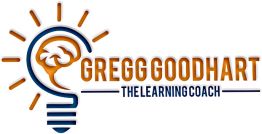I’m not big on teasing the possibility of feel good moments by suggesting how things from the learning science might work. I’ve got teaching to do. 😉
However, something occurred to me that would be easy, and might be helpful.
How many of us have struggled through a hard practice, not felt like we made much progress, or even regressed, and given up to fight another day? Not a good feeling.
I have those days too, and I’ve noticed something
If I, all of a sudden, at some point in my practice, am able to play something I’ve been working with over time really well, or make some good progress on a newer problem, all of sudden, like magic, I feel like practicing more.
I literally go from ‘this is the worst to a practice burst’. If it happens at the end of a practice that I’ve dutifully suffered through, all of a sudden I want to keep going.
I am always amazed by this major emotional shift ‘on a dime’. It happens immediately. Of course, that is dopamine firing in my brain because I’ve accomplished something. That is why minute to minute problem solving is the key to love of learning in any subject at any age. If we’ve always got some progress to make, our brain is a dopamine dealer.
Sometimes it takes a while, over many practices, to get better at things. Even with the best practice techniques sometimes all of these not so great things happen on the same day.
It is like my very own practice rain cloud above my head.
But, as I said, if something clicks the sun shines through, and I’m on a beach near the equator.
Then I connected that with something from cognitive science called the Peak/End rule.
We can’t, all of a sudden, will ourselves to find the perfect solution. Some days are just that way and the best we can do is fail so we can learn what not to do, but we can try something to get us in a better frame of mind, or at least walk away from practice feeling better.
The Peak-end Rule describes research which, in part, shows that our impression of whether a situation was pleasant or painful is influenced by how we experience the end of the experience even if we had a prolonged painful experience leading up to it.
I’ll save you the sordid details, but there was research done on people going through a very painful procedure/situation and a more pleasant one. If most of the experience, over time, was pleasant but painful at the end then the entire experience was remembered as painful.
However, if the experience was painful for most of it, but eased up at the end, it was remembered as more pleasant, and given an option to repeat one of the two experiences they chose the one with more prolonged pain that eased up at the end!
Sorry folks, that is just the way our brains work. They lie to us all the time. For instance – you are not untalented and unable to get good at music – that is your brain lying to you – no joke.
Referencing Nobel Prize winning researcher Daniel Kahnemman, whose book Thinking: Fast and slow, introduced me to this research.
If you think this isn’t happening to you, you are wrong. There is nothing we can do about it, BUT we can be aware of it, so that we might mitigate it.
Let’s mitigate, shall we?
Why not do something musically pleasurable at the end of a tough practice, so we are left with a positive impression – even if it is wrong! Might as well feel good and return to it in a better frame of mind next practice, right?
Pick something you like to play. Maybe a simple etude from last year, or years ago. Maybe a very easy blues jam, the intro to that one rock tune you play so well, that one jazz solo you learned that you can pull off.
Just enjoy yourself. Sometimes I play little tunes that are practice exercises, and try to play loud and proud. It feels good.
You know you’ve got some things you can play well. You might not like doing so because it is too ‘easy’, but if you are already feeling defeated then why not?
See what happens.
Get back to me and let me know.
Oh, and little kids getting a basket of happy puppies as a present.
Aren’t they cute! Look at those little wet noses! I”m going to name one Beauregard!
Ok, that was my attempt at manipulating the Peak/End rule.
Gregg
